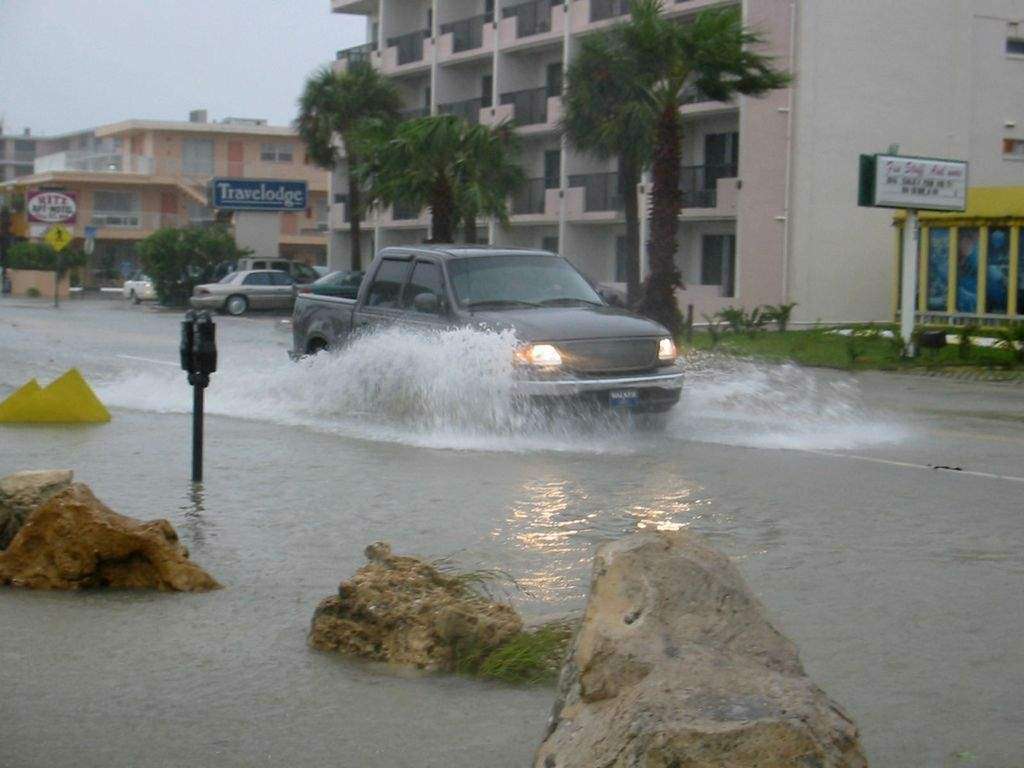 Private flood insurance support bill in Senate’s hands
Private flood insurance support bill in Senate’s hands
Called the Flood Insurance Market Parity and Modernization Act, the bill is that rarest of animals in the House – widely backed up by Republicans and Democrats and also by a broad coalition of environmental organizations, insurance lobbying groups, taxpayer groups and real estate interests.
The House version was introduced in June 2015 by Rep. Dennis Ross, R-Lakeland, and co-sponsor Patrick Murphy, D-Jupiter.
If enacted, it will clear the way for lenders to accept private flood insurance policies that provide coverage at least as effective as those sold through the National Flood Insurance Program, which sells nearly all flood insurance in the U.S. All homes in high-risk flood zones with mortgages backed by the federal government, such as Freddie Mac or Fannie Mae, must carry flood insurance.
The bill also clarifies that private flood insurance can be issued by any company approved to sell insurance within a state where the insured building is located, including regulated and unregulated companies.
Supporters say expanding private flood insurance can result in improved coverage and reduced prices.
Expanding the private flood insurance market nationally had been a purpose of the Biggert-Waters reforms enacted in 2012. The National Flood Insurance Program was drowning in $24 billion in debt after a decade of weather catastrophes, and Congress was determined to reduce the program’s risk load.
But some lenders interpreted that law as stating that private flood insurance plans would have to be approved by banking regulators, said Jenn Fogel-Bublick, a lobbyist for SmarterSafer.org, a coalition that supports reforming the National Flood Insurance Program.
“Essentially this is a clarification that lenders can accept private flood insurance without any further regulation,” Fogel-Bublick said Monday.
SmartSafer says the measure is supported by Sierra Club, National Wildlife Federation, National Taxpayers Union, Taxpayer Protection Alliance and the National Association of Realtors.
Dave DeMott, president of Plantation-based Gridiron Insurance, said the clarification is required. Gridiron started offering private insurance backed by Lloyds of London in 2014 but “we had several occasions where we saved the insurer over 20 percent (compared with the National Flood Insurance Program) and the bank forced the insured to place coverage with the NFIP.”
Florida, with about 35 percent of all National Flood Insurance Program policies, is viewed as a testing ground for efforts to establish private coverage with broader, better plans. In recent years, a small number of companies have started offering standalone flood policies, including HCI Group’s Homeowners Choice and a sister company formed this current year, TypTap, that permits customers to buy flood policies online without needing to talk with an agent.
Kevin Mitchell, vice president of investor relations for HCI Group, said the companies’ flood insurance venture is off to “a strong start”
Even though the HCI companies have experienced no problem persuading mortgage lenders to accept its flood policies, HCI supports legislation that assists to improve the private flood insurance market, Mitchell said Monday. “From our standpoint, we welcome the competition,” he said. “We need multiple competitors to truly develop a market.”
Supporters hope the unanimous vote in the House persuades the Senate to move quickly, Fogel-Bublick said. The Senate version of the bill, co-sponsored by Dean Heller, R-Nevada, and Jon Tester, D-Montana, has been awaiting a hearing by the Senate since its introduction on June 25. Currently it’s in the Committee on Banking, Housing and Urban Affairs without any debate scheduled.
“Nothing is easy to get across the finish line in the Senate,” Fogel-Bublick said. “Our hope is the Senate just takes it and passes it. But we understand if it has to go through the process.”